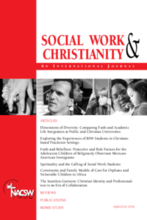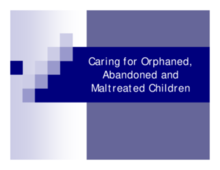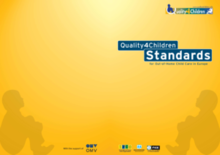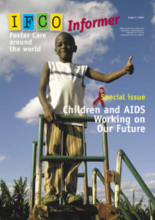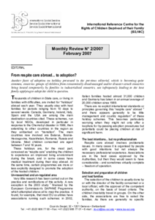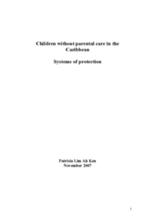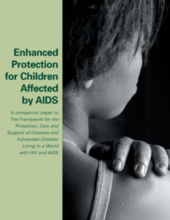Displaying 2111 - 2120 of 2223
Unites scripture and evidence to help guide North American Christians in responding the needs of children affected by HIV/AIDS. Identifies the shortcomings of institutional care and outlines specific and better alternatives available for supporting children in Africa. Highlights related resources for follow-up.
A powerpoint presentation on the research findings of the Bucharest Early Intervention Project team. Includes comparisons of children raised in institutional care, vs. children placed in foster care, vs. children raised in the community.
A set of standards on the process of a child or young person entering care, being cared for, and leaving care, based primarily on the views of children, families, and caregivers.
The February 2007 edition of the IFCO Informer. Focuses on foster care solutions in the context of the global AIDS pandemic.
An 8-page document containing articles and updates from ISS/IRC.
A regional assessment of responses to children outside parental care in the Caribbean. Extensive research on successful examples of alternative care. Includes recommendations and lessons learned.
This chapter briefly outlines the range of assessments that are undertaken by psychologists in regards to placements for children in care, and underlines the importance of drawing together information about the child from different sources and perspectives.
Outlines how to strengthen social protection, legal protection, and alternative care for children at country level. Contains specific actions that governments and NGO's can take to decrease the vulnerability of children affected by AIDS and respond to instances of abuse, exploitation and neglect.
Overview of institutional and alternative care for Children in Need of Special Protection in Vietnam
This document presents the full policy on the alternative care of children in Cambodia.

